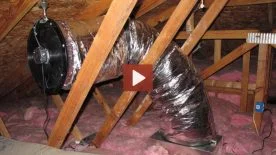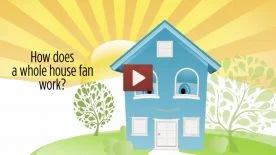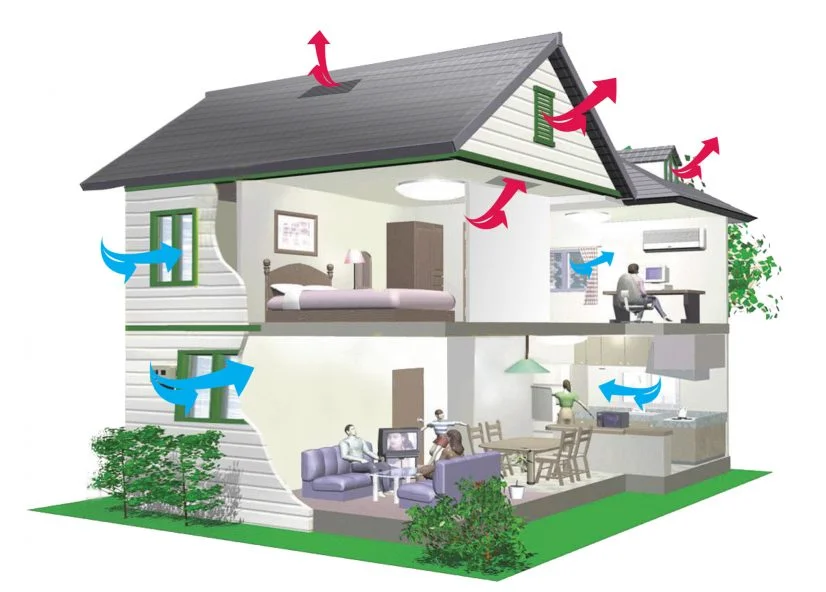Superior Engineered Fans Modern, Quiet & Energy Efficient Save up to 90% on Cooling Bills
We can’t thank you enough for our incredible new whole house fan. It’s amazing how quiet, yet effective it is. Terry & LauraSee More Customer Reviews
We can’t thank you enough for our incredible new whole house fan. It’s amazing how quiet, yet effective it is. Terry & LauraSee More Customer Reviews




Benefits Of Centric Air and QA-Deluxe House Ventilation Fans
Why People Love CentricAir Whole House Fans
Whole house attic fans offer a variety of benefits that can enhance comfort, health, and financial savings. Here are some of the main reasons why whole house fans are popular:
Energy Efficiency and Cost Savings: Whole house ventilation fans use a fraction of the electricity compared to traditional air conditioning. By drawing cool fresh outside air into the house and exhausting warm stale air out, these fans can significantly reduce the need for air conditioning during cooler evenings, nights and early mornings, leading to substantial energy savings and lower utility costs.
Cooling Effect: Whole house ceiling exhaust fans effectively reduce the indoor temperature of a home by circulating cooler outside air. This can make the living environment inside the home more comfortable, especially during the evening, night and early morning when outdoor temperatures drop.
Improved Air Quality: Quiet whole house fans help ventilate homes, reducing the concentration of indoor air pollutants, such as volatile organic compounds (VOCs), dust, allergens, pet dander and cooking odors. By exchanging the indoor air with fresh outdoor air multiple times an hour, these house ventilation fans can significantly improve indoor air quality.
Environmentally Friendly: By reducing the need for air conditioning, quiet whole house fans can also reduce the carbon footprint of a home. This is in line with growing consumer interest in more sustainable and eco-friendly home cooling solutions.
Quiet Operation: Modern ducted energy efficient whole house fans are designed to operate quietly, minimizing noise disruption. This is a significant improvement over older models and makes them more enjoyable to use, especially during nighttime hours.
Ease of Installation and use: Whole house attic fans are generally easier and less costly to install compared to central air conditioning systems. Many can be operated simply by opening a few windows and turning the system on, making them user-friendly.
While whole house attic fans are highly beneficial and loved by many, it’s important to note that they are most effective in regions of the country where the temperature drops at night and the air outside is cooler than the air inside. They might not be the best choice in areas with consistently high humidity or where nights remain very warm.